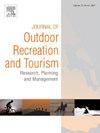“疗愈自我,疗愈自然”:整体热疗在西班牙是一种相互丰富的实践吗?
IF 4.4
3区 管理学
Q1 HOSPITALITY, LEISURE, SPORT & TOURISM
Journal of Outdoor Recreation and Tourism-Research Planning and Management
Pub Date : 2025-02-15
DOI:10.1016/j.jort.2025.100860
引用次数: 0
摘要
在更可持续的旅游替代方案下,围绕着自然中具有弹性和沉浸式的休闲实践,提出了各种建议。在这种背景下,整体热疗作为“自然健康”的典范案例脱颖而出,依靠现场利用矿物药用水来实现超越单纯娱乐的体验,演变成与生命之网交织在一起的精神和触手动机。事实上,这是它最重要的定义性质,将热作用与它最原始和祖先的概念联系起来。使用者必须前往健康水所在的位置,参与其循环和生态系统的组成部分,他们的逗留需要一定程度的社交和宁静,因为感官因素和环境有助于创造一个对热疗至关重要的治疗和治愈景观。同时,进行热疗的环境必须满足一系列后勤和技术要求,以确保治疗的成功,例如提供配套的住宿、餐饮服务和其他基础设施,专门为这种缓慢的旅游提供:在极具审美和环境吸引力的环境中漫步的路径和小径。在西班牙,鉴于上述条件,热旅游通常在生态价值高的地区进行,在农村地区暴露于人口减少问题和放弃具有弹性的农业和畜牧业实践与环境。从这个意义上说,研究的主要目的是反思在西班牙的温泉场所,如何将矿物药用水的使用与空间、自然资源、遗产、人口和景观联系起来,形成热疗概念的重要组成部分。同时,这也为保护具有高生态价值的地区提供了机会。•整体旅游的独特性以及它涉及非大众旅游的事实将吸引更关注的用户。•现代热中心在室内创造人工环境,几乎不与自然直接接触。•对热区的景观和自然资源进行有效的管理是必要的。•应在热疗中心引入整体热疗的概念,将自己定位为一个健康品牌。本文章由计算机程序翻译,如有差异,请以英文原文为准。
“Healing ourselves, healing nature”: Holistic thermalism in Spain as a mutually enriching practice?
Under more sustainable alternatives of tourism, a variety of proposals are encompassed, revolving around resilient and immersive leisure practices in nature. In this context, holistic thermalism stands out as a paradigmatic case of "being-well in nature," relying on the on-site utilization of mineral medicinal waters to achieve an experience that transcends mere recreation, evolving into spiritual and tentacular motivations intertwined with the web of life. Indeed, this is the most significant of its defining qualities, linking thermalism to its most original and ancestral conception. The user must necessarily journey to the location where the health-giving waters reside, engage with their cyclical and ecosystemic components, and their sojourn requires a certain degree of sociability and tranquility, as sensory factors and the environment contribute to creating a therapeutic and healing landscape crucial to thermalism. Simultaneously, the setting where the thermal cure takes place must meet a series of logistical and technical requirements to ensure the success of the treatment, such as providing complementary accommodation, dining services, and other infrastructure dedicated to this slow tourism: paths and trails for strolling through environments of great aesthetic and environmental appeal. In Spain, and given the aforementioned requisites, thermal tourism is typically carried out in areas of high ecological value, within rural areas exposed to depopulation issues and the abandonment of resilient agricultural and livestock practices with the environment. In this sense, the main aim of the research is to reflect on how the use of mineral-medicinal water in thermal places in Spain is linked to the space, natural resources, heritage, population, and landscape, forming a prominent part of the concept of thermalism. At the same time, this represents an opportunity for the conservation of areas of high ecological value.
Management implications
- •The uniqueness of holistic tourism and the fact that it involves non-mass tourism will attract a more concerned user.
- •Modern thermal centres create artificial environments indoor with little direct contact with nature.
- •The efficient management of the landscape and natural resources in thermal locations is necessary.
- •The concept of holistic thermalism should be introduced in thermal centres to position themselves as a health brand.
求助全文
通过发布文献求助,成功后即可免费获取论文全文。
去求助
来源期刊

Journal of Outdoor Recreation and Tourism-Research Planning and Management
HOSPITALITY, LEISURE, SPORT & TOURISM-
CiteScore
6.70
自引率
5.30%
发文量
84
期刊介绍:
Journal of Outdoor Recreation and Tourism offers a dedicated outlet for research relevant to social sciences and natural resources. The journal publishes peer reviewed original research on all aspects of outdoor recreation planning and management, covering the entire spectrum of settings from wilderness to urban outdoor recreation opportunities. It also focuses on new products and findings in nature based tourism and park management. JORT is an interdisciplinary and transdisciplinary journal, articles may focus on any aspect of theory, method, or concept of outdoor recreation research, planning or management, and interdisciplinary work is especially welcome, and may be of a theoretical and/or a case study nature. Depending on the topic of investigation, articles may be positioned within one academic discipline, or draw from several disciplines in an integrative manner, with overarching relevance to social sciences and natural resources. JORT is international in scope and attracts scholars from all reaches of the world to facilitate the exchange of ideas. As such, the journal enhances understanding of scientific knowledge, empirical results, and practitioners'' needs. Therefore in JORT each article is accompanied by an executive summary, written by the editors or authors, highlighting the planning and management relevant aspects of the article.
 求助内容:
求助内容: 应助结果提醒方式:
应助结果提醒方式:


